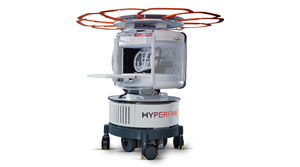NEWS TRENDS Medical imaging technology has improved treatment options and helped to deliver better patient care at a lower cost, according to a new report.The report, titled The Value of Medical Imaging: Improving Outcomes & Reducing Costs, highlights a variety of peer-reviewed medical imaging research. Prepared by the Medical Imaging & Technology Alliance (MITA), the paper discusses the role of imaging technology in the conditions that it is used to help identify, including the following:
September 1, 2008
Cancer.
Cardiac disease.
Stroke and vascular disease.
Cardiovascular diseases.
Appendicitis.
Orthopedics and osteoporosis.
Trauma care.
“This paper is an important reminder of the many ways that medical imaging has become integral to best practices across so many disease states, and proven to play a critical role in providing efficient, high-quality patient care,” says Andrew Whitman, vice president of MITA.
Imaging has become particularly important in cancer screenings.
“Every day in the United States, more than 100 people die needlessly of colorectal cancer, simply because they weren't screened,” says Tim Turnham, CEO of the Colon Cancer Alliance, a national patient advocacy group. “Through peer-reviewed research, including the medical literature cited in this paper, new imaging technologies such as virtual colonography have proven their effectiveness, and as a result, have provided patients with more options for screening.”
MITA, which is a division of the National Electrical Manufacturers Association, plans to share the information with industry stakeholders.
“We look forward to sharing this resource with policymakers, healthcare payers, and others as important decisions are made about patients' access to these lifesaving technologies,” Whitman says.
View the entire report or download it as a PDF at www.medicalimaging.org.
Copyright ©2008 Medical Device & Diagnostic Industry
About the Author(s)
You May Also Like


